09.30
|
Event opens |
10.00
|
Conference chair’s opening note: Samira Ahmed, Journalist and Broadcaster
Award-winning journalist and broadcaster Samira Ahmed presents Front Row on Radio 4 and Newswatch on BBC1. She was named British Broadcasting Press Guild audio presenter of the year in 2020. She began her career as a BBC news trainee working as a Newsnight reporter, News Correspondent, LA Correspondent, where she covered the OJ Simpson civil trial. She was a news anchor for BBC World and Deutsche Welke TV in Berlin.
From 2000-2011 she was a correspondent and news anchor at Channel 4 News, where she won Stonewall Broadcaster for her film on the so called “corrective” rape of lesbian women in South Africa. Samira’s acclaimed documentaries included Art of Persia - the first major Western documentary series to be filmed in Iran for 40 years. Samira is a trustee of three charities: Action for Stammering Children, the Centre for Women’s Justice and UK Feminista. And is on the advisory board of the National Science and Media Museum in Bradford.
|
10.05
|
Keynote - Professor Dame Carrie MacEwen, Acting Chair, GMC
Professor Dame Carrie MacEwen was appointed as Acting Chair of the GMC in August 2021.
Carrie is a consultant ophthalmologist for NHS Tayside and Honorary Professor at the University of Dundee. She served as Chair of the Academy of Medical Royal Colleges, until 2020 and is Past-President of the Royal College of Ophthalmologists.
Carrie is a specialty advisor to the Scottish Chief Medical Officer and leads the Scottish Eyecare Workstream. Carrie has served on several committees in support of education, training and assessment and NHS committees regarding service re-design for general medical services. She chairs the multi-professional subcommittee of the Royal College of Ophthalmologists, the Trustee Board of the Healthcare Quality Improvement Partnership, is a trustee of the Moorfields Eye Charity and a member of the council of the University of Exeter.
|
10.35
|
Keynote - Dr Farzana Hussain, GP Principal at The Project Surgery and formerly Co-Chair of the NHS Confederation PCN Network and Clinical Director of the Newham Central One Primary Care Network
A highly accomplished clinical leader with more than 20 years of experience as a practicing GP principal and in a variety of local and national roles.
She co-created the and Chaired the National PCN Network within the NHS Confederation attaining significant influence of national policy during this time. She served as a clinical director for a Primary care network from their inception, for 3 years.
She has achieved national recognition for her innovative work in relation to improving immunisation during the Covid-19 Pandemic, appearing on local and national media.
She was recognised as the ‘GP of the Year’ in 2019 by the General Practice Awards and voted an outstanding BAME leader in the HSJ Wildcard list for 2021.
She has significant experience of managing transformational change using quality improvement methodology and a background of educational facilitation and coaching.
|
11.15
|
Break / networking |
|
11.30
|
Workshops - round one
No decision about me, without me: what we
can do to improve patients' conversations with doctors
Doctors are meant to work in partnership
with patients, giving them a say over their care and the opportunity to make
informed choices about their treatment. One year on from when the GMC updated
its guidance on consent for doctors, patients say they still struggle to be
heard and involved in decisions about their care. We’ll explore why this happens
for some patients, and what can be done in doctors’ education and practice to
improve the conversations patients have with medical professionals.
Speakers:
- Dr Helen Mackie, National
Clinical Advisor, Scottish Government
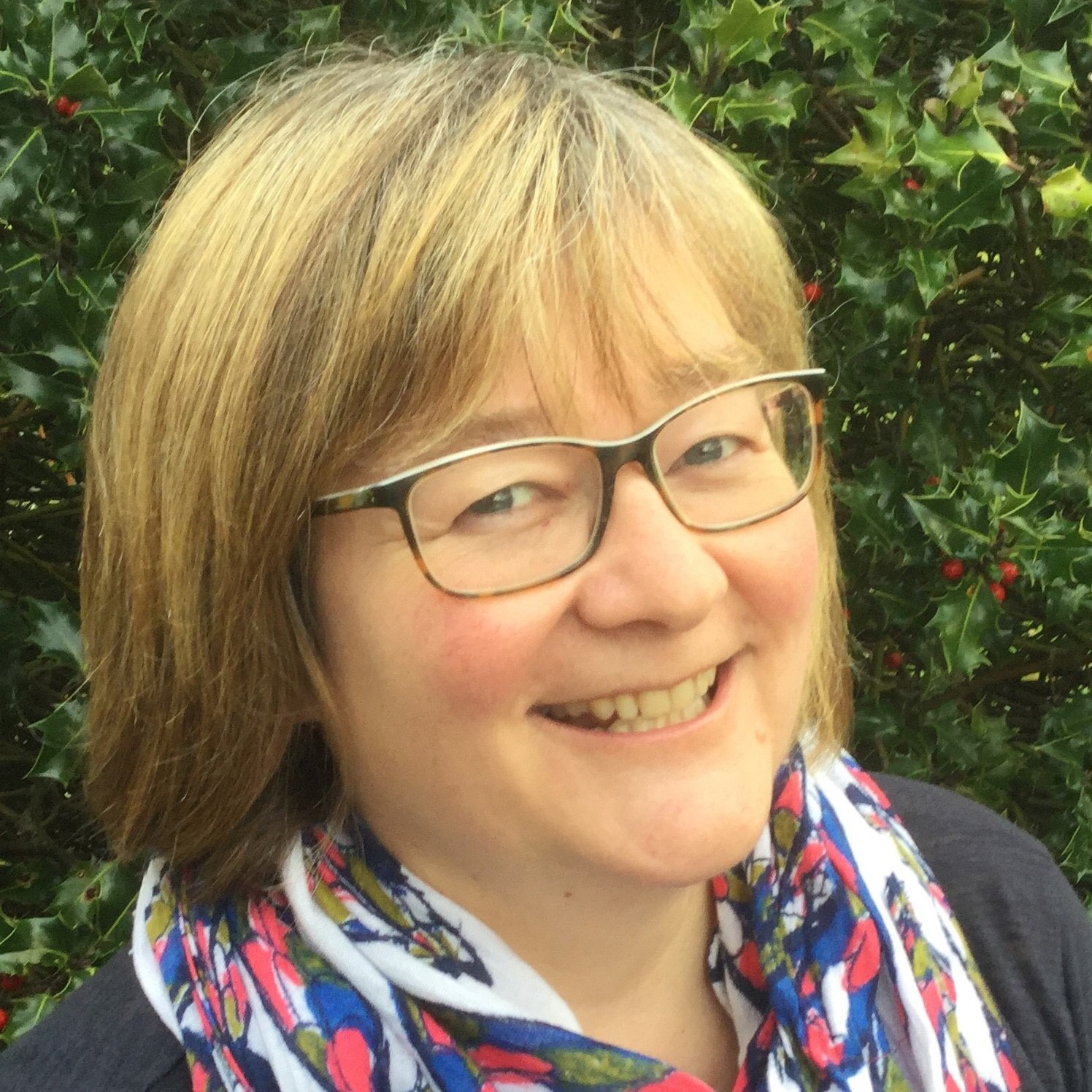
Helen is the National Clinical
Advisor for Realistic Medicine working within the
Scottish Government’s Chief Medical Officer Directorate.
She has been in this post since November 2017 as part of
the Realistic Medicine policy team. The aim of the team
is to deliver on the CMO’s vision: “By 2025 everyone who
provides healthcare in Scotland with demonstrate their
professionalism through the approaches, behaviours and
attitudes of Realistic Medicine.”
Helen is also Associate Medical Director at the Golden
Jubilee National Hospital and is responsible for the
National elective services division which provides
orthopaedics, general surgery and cataract surgery as
National waiting times centre for Scotland. Prior to
this post Helen was the Chief of Medical Services at
University Hospital Hairmyres, East Kilbride. In this
role she led on patient safety, clinical governance,
improvements in unscheduled care, medical training,
hospital huddles and staff wellbeing. Her clinical
background is as a gastroenterologist with interests in
endoscopy, inflammatory bowel disease and nutrition.
- Rachel Power, Chief Executive, The Patients
Association
Rachel joined The Patients
Association as Chief Executive in June 2017, bringing
with her over 20 years’ experience of health and social
care in the not-for-profit sector.
Since joining, Rachel has overseen a significant period
of change, which has included a significantly increased
and engaged membership. Rachel was appointed to the NHS
Assembly in 2019.
Rachel is now focused on taking the Patients Association
to a new level of patient representation, with the
launch of a five-year strategy focused building true
partnerships with patients throughout health and care
services. The strategy answers the challenge of
rebuilding health and care following the pandemic and
overcoming many long-running problems for patients about
not being listened to and services that meet their
needs.
- Professor Robina Shah, Professor of Medical
Education and Psychosocial Medicine, University of Manchester
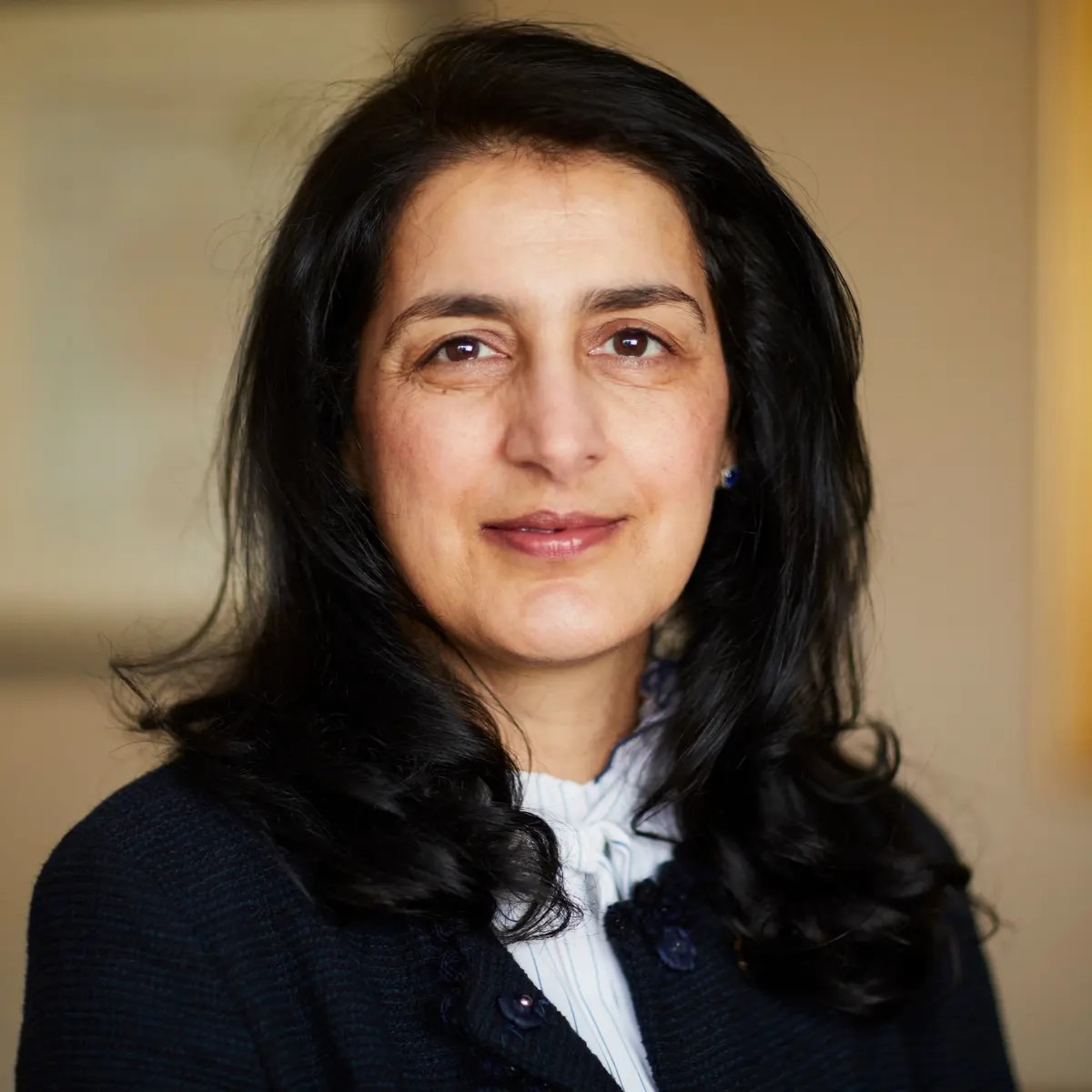
Robina is Professor of Medical
Education and Psychosocial Medicine in the Division of
Medical Education at the University of Manchester. She
is a Chartered Consultant Psychologist and an
established author with a specialist interest in medical
education, psychosocial medicine, equality diversity and
inclusion, person centred care, supporting family carers
and children with a learning disability.
Robina has an extensive public service record spanning
over 25 years. She was appointed to her first NHS
non-executive director role in 1993 and was appointed
Chair of Stockport NHS Acute Trust in 2007. Robina led
the Trust to be one of the first of only ten NHS Trusts
to be awarded Foundation Trust Status in 2004. When she
completed her tenure, Robina was the youngest and
longest serving Chair of an NHS Acute Trust in England.
Robina is a thought leader and has held numerous
national and international leadership roles in the NHS,
the Department of Health and Social Care, the RCGP, the
Prime Minister’s NHS Future Forum, the National Patient
Safety Agency, and the World Health Organization.
Creating compassionate work
environments
The COVID-19
pandemic has highlighted the central importance of compassion in leadership and
in our work environments. In this workshop, delegates will
discuss what compassionate work environments and leadership mean; examine how
and to what extent the four UK NHS systems are responding to the current needs
of the workforce; consider how each system’s recovery plans are being translated
into practice; and discuss what more needs to be done at the level relevant to
their role.
Speakers:
-
Professor Michael West CBE HonFRCPSG Senior
Visiting Fellow, The King’s Fund and Professor of Organisational Psychology,
Lancaster University
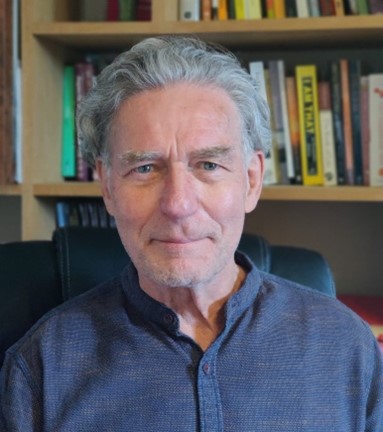
Michael West CBE is Senior Visiting Fellow at The
King’s Fund, London and Professor of Organisational
Psychology at Lancaster University, Visiting Professor
at University College, Dublin, and Emeritus Professor at
Aston University, where he was formerly Executive Dean
of Aston Business School.
He graduated from the University of Wales in 1973 and
was awarded a PhD in 1977 for research on the psychology
of meditation. He has authored, edited and co-edited 20
books and has published more than 200 articles in
scientific and practitioner publications on teamwork,
innovation, leadership, and culture, particularly in
healthcare. He is a Fellow of the British Psychological
Society, the American Psychological Association (APA),
the APA Society for Industrial/Organisational
Psychology, the Academy of Social Sciences, the
International Association of Applied Psychologists and
the British Academy of Management. He is an Honorary
Fellow of the Royal College of Physicians and Surgeons
of Glasgow.
He led the English Department of
Health Policy Research Programme into cultures of
quality and safety. He also led the NHS National Staff
Survey development and initial implementation. He
assisted in developing the national framework on
improvement and leadership development in England
(Developing People, Improving Care - 2016) and in
Northern Ireland in developing the Collective Leadership
Strategy for Health and Social Care (2017). He is
supporting Health Education and Improvement Wales to
develop the national health and care compassionate
leadership strategy in Wales. He co-chaired with Dame
Denise Coia, the two-year inquiry on behalf of the UK
General Medical Council into the mental health and
well-being of doctors Caring for Doctors, Caring for
Patients (2019). He led the review for The King’s Fund
(commissioned by the RCN Foundation) into the mental
health and well-being of nurses and midwives across the
UK, The Courage of Compassion: Supporting Nurses and
Midwives to Deliver High Quality Care (2020). His latest
book (2021) is Compassionate leadership: Sustaining
wisdom, humanity and presence in health and social care
(London: Swirling Leaf Press).
He was appointed a
CBE in the Queen’s Birthday Honours List 2020 for
services to compassion and innovation in healthcare.
-
Sara Moseley, Head of GMC Wales
Sara Moseley joined the GMC as Head of GMC Wales in April 2021 having previously been Director of Mind Cymru for nearly six years. She has a strong interest in mental health and wellbeing as well as expertise in communications, engagement, and policy gained through working in the third sector, the NHS, and Government.
She is an elected Board member of the Wales Council for Voluntary Action and an Independent Member of Cardiff and Vale University Health Board. Sara is a fluent Welsh speaker, originally from Aberystwyth, and has two children in higher education, one of whom is profoundly deaf.
-
Nicola Cotter, Head of GMC Scotland
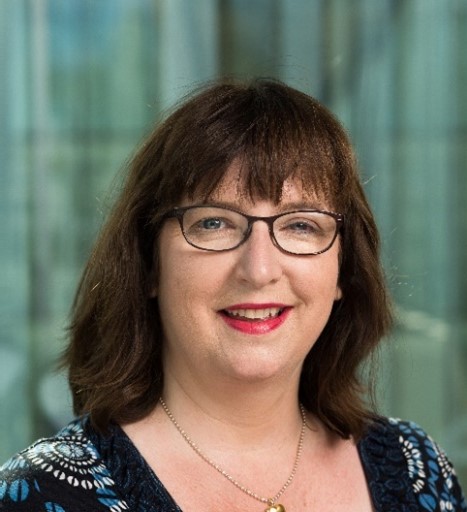
Nicola Cotter is Head of GMC Scotland and is responsible for setting the strategic direction of the GMC's work in Scotland, working with partner organisations, and leading communications and engagement with the medical profession and stakeholders. She has over 25 years of management experience including 15 years’ working across the health and care sector in Scotland, supporting health professionals, patients and their families, and influencing policy development around person-centred care.
Nicola joined the GMC as Scotland Liaison Adviser in 2015, working on the 'frontline' supporting over 3000 doctors across Scotland to embed GMC standards and guidance into practice, as well as talking to them about other key areas of GMC work including revalidation and our educational developments. She has engaged with all 14 Health Boards giving her with a unique insight into the pressures being experienced by the profession. This insight enables the GMC to continue to support and develop our upstream work with doctors and medical students.
Fairer referrals – Intervening
upstream to reduce differentials in fitness to practice referrals from
employers
In 2019 we published
Fair to refer?, a review aimed at understanding more about why some groups of
doctors are disproportionately referred by employers to the GMC. The findings
pointed to work environments and cultures as causes of disproportionality in
referrals to the GMC.
The GMC has committed to eliminate disproportionality in fitness to practise
referrals from employers based on ethnicity and place of primary medical
qualification by 2026. In this session, we will consider what all of us in the
UK’s health systems need to do to achieve this.
Chair:
- Andy Lewis, Assistant Director for England, General Medical Council
Speakers:
- Anton Emmanuel, Professor of Neuro-gastroenterology at University College London and consultant gastroenterologist at UCLH and the National Hospital for Neurology and Neurosurgery
- Patricia Miller OBE, Chief Executive of Dorset County Hospital NHS Foundation Trust and Chief Executive Officer Designate for Dorset’s Integrated Care Board
- John Smyth, Assistant Director, Case Examiner Team, General Medical Council
- Jo Wren, Jo is Head of GMC London within our Outreach team, and has been leading some of our activity in responding to our targets
|
12.15
|
Lunch / networking
Lunchtime workshop:
Professionalism for medical
students: a spotlight on teamwork (in-person only)
How do students view their role in multidisciplinary teams?
Molly Hugkulstone and Clare Pearson, fifth-year medical students at the
University of Cambridge, won the 2021 joint General Medical Council and Medical
Schools Council student professionalism competition. Join their session to
explore what professionalism means as a student, with a focus on understanding a
student’s role in a healthcare team and the importance of teamwork.
Speakers:
- Clare Pearson, Medical student, University of Cambridge
Clare is currently a fifth year clinic medic at Fitzwilliam College, Cambridge. She intercalated in physiology, development and neuroscience with a minor of philosophy and ethics of science. Alongside her studies she is has been co-president of Fitzwilliam medical society and has an interest in surgical specialties.
- Molly Hugkulstone, Medical student, University of Cambridge
Molly Hugkulstone is a fifth year medical student at the University of Cambridge (Fitzwilliam College). She received a first-class BA degree in Physiology, Development and Neuroscience in 2020. Since starting her clinical studies, she has developed a growing interest in both paediatrics and psychiatry.
|
|
13.15
|
Keynote - Clo Abe and Tinuke Awe - Co-founders, Five X More |
14.00
|
Workshops - round two
Doctors' experiences and retention
through the pandemic
In this
session we will explore doctors’ experiences of working through the COVID-19
pandemic - both positive and negative – based on data from The state of
medical education and practice 2021 report and more. We will look at
clinicians’ experiences of change in the workplace and how these have shaped
patient care, team working, satisfaction, career plans and international
movement, and what this suggests in relation to recovery.
Chair:
Mark is the Assistant Director for the Standards
and Ethics team at the GMC. This team is responsible for
our core guidance for the doctors: Good Medical Practice
(GMP), and other guidance which builds on the principles
in GMP. We produce learning materials and give advice on
standards and ethics through our enquiry service.
Prior to joining the GMC in 2018, Mark worked in the
civil service, latterly as Head of Strategic Reform and
Priorities at the Department for International
Development. Prior to that he held a number of policy,
operational and private office roles at the Department
for Work and Pensions.
Speakers:
Mary is the
Principal Insights Manager in Strategy and Policy’s Data
Research and Insight Hub (DRIH). Mary leads the
development, analysis and authoring of the GMC’s
evidence report, The state of medical education and
practice. The DRIH team helps GMC teams and decision
makers, policy teams, and external stakeholders make
clear evidence-based decisions. We do this by producing
insightful and accessible evidence quickly.
Prior to joining the GMC in 2016, Mary has worked as a
social research specialist and policy lead for several
organisations including the Solicitors Regulation
Authority, Quality Assurance Agency for higher
education, and the UK Commission for Employment and
Skills. Prior to this she worked for several research
and consultancy companies working on a range of public
policy research and evaluation projects and programmes.
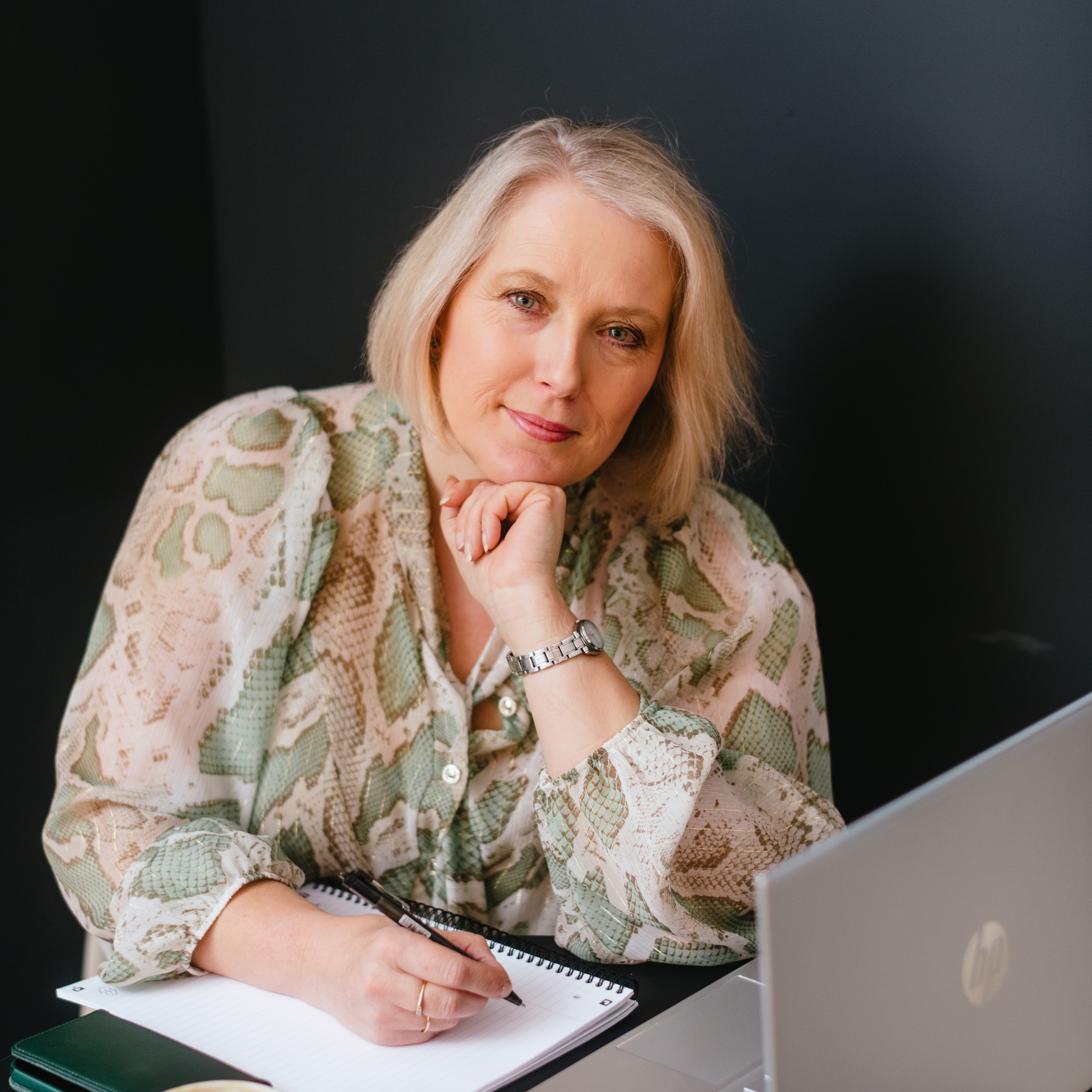
Jacqui Thornton is an
award-winning health journalist for the Lancet, BMJ,
Nature who has written for the GMC’s state of medical
education and practice for the last decade.
She is an accomplished moderator of conferences,
advisory boards and webinars, and a speaker and opinion
former on health and the media.
She began her career as a news reporter, working for the
Daily and Sunday Telegraph before specialising in health
for the Sunday Telegraph. In 2000 she became the Sun’s
first health editor.
In 2007 she set up her own company Jacqui Thornton
Communications Ltd offering media training consulting,
facilitation and writing services for healthcare
companies and organisations, and has built up clients
throughout the UK, Europe and US.
She remains a freelance journalist specialising in
global health. Since 2014 she has reported from Uganda,
Rwanda, Brazil, Mexico, Tajikistan, Tanzania, South
Africa, Bulgaria, Somalia and Zimbabwe on subjects from
HIV, diabetes, TB, cancer and trauma, for medical
journals and UK newspapers.
In 2020 she won a prestigious £10,000 award from the
European Journalism Centre to write about vaccination
and she travelled to Samoa to write about the measles
outbreak for the Lancet, the Guardian, Mail Online and
the London School of Hygiene and Tropical Medicine.
Throughout Covid she reported extensively for the BMJ on
the response of the NHS and the profession. For SOMEP
that year she interviewed 13 doctors for in-depth
explorations of their experiences.
Previously, she was awarded Specialist of the Year 2015
by the Guild of Health Writers, Specialist Freelance of
the Year in 2016 by the Medical Journalists Association
for her work generally. She was long listed for the
Guardian's International Development Journalism Award in
2010.
Frontline perspectives on integrating PAs
and AAs into multidisciplinary teams
The GMC will soon regulate physician
associates (PAs) and anaesthesia associates (AAs). In this session, PAs, AAs and
the doctors they work with, will share best practice for maximising roles and
addressing the challenges of integrating any new post into a multidisciplinary
team.
Speakers:
-
Mr Numah Shah, Consultant Trauma and Orthopaedic (Hip and Knee) Surgeon at Salford Royal NHS Foundation Trust, Major Trauma Centre for Greater Manchester
Mr Shah is a Consultant Trauma and Orthopaedic (Hip and Knee) Surgeon at Salford Royal NHS Foundation Trust, Major Trauma Centre for Greater Manchester. He qualified in 2004 from the University of Manchester, completing his orthopaedic training in Yorkshire and subsequently gaining his CCT in 2016. He undertook specialist fellowships at Wrightington Hospital, and worked as the Sir John Charnley fellow. He has an interest in 3D simulated surgery, infection and post-operative rehabilitation for arthroplasty patients and robotic surgery.
He is the Lead for Physicians associates in Trauma and Orthopaedics and is involved with teaching and educating, acting as supervisor to medical students, PA students and junior doctors.
-
Dr Adam Thomas, GP and a Training Programme Director for the North Staffordshire GP VTS
Adam is a newly qualified General Practitioner working across Shropshire and Mid Wales, and a Training Programme Director for the North Staffordshire GP VTS. He graduated from the Shropshire VTS in July 2021. During his GP training he took a year out to undertake an FMLM National Medical Directors Clinical Fellowship in Leadership and Management, spending his year at the GMC with the assessments team. Prior to this he undertook Core Surgical Training in Manchester and Foundation Training in the West Midlands.
He has a keen interest in medical education having completed a Masters in Medical Education from Keele University, where he also graduated from Medical School in 2012.
- Lee Varney, Anaestheisa associate, University College London Hospitals NHS FT
Building a better start: the role of
induction in promoting positive, inclusive cultures
Explore recent research on induction, and
consider the impact of induction on workplace cultures, in an interactive
workshop covering in particular: trainees’ experience of induction; locums’
experience of induction and how organisations can best support international
medical graduates as they join. Polling technology and break out discussion
will enable you to share ideas and learn about good practice and the
opportunities available to build better inductions in the workplace.
Speakers:
Tista has worked in the service for over 20 years supporting survivors of abuse. She also co-leads the outreach team at the GMC and heads up our welcome to UK practice work to support doctors who qualified overseas. Besides leadership responsibilities, Tista's role involves engaging with doctors, system partners and developing workshops on ethical standards.
Prior to joining the GMC, Tista spent many years in stakeholder management, and worked full time with survivors of abuse, particularly in children's and mental health support services. More recently she has worked on collaborative projects with the Gold Standards Framework, Marie Curie and RCGP. Tista still provides support to survivors of abuse and is involved in collaborative projects to empower women and children.
Tista is passionate about the NHS and has particular interests in safeguarding, medical leadership and quality improvement.

Dr. Chiara Cattrais a Psychiatry trainee based in Solent NHS Trust, recently awarded a National Medical Director's Clinical Fellowship with the General Medical Council and based in the Fitness to Practice directorate. She studied Medicine at King's College London, completed her Foundation training in North Wales alongside postgraduate qualifications in Medical Education and Leadership, before moving to the south coast for an Academic Clinical Fellow post in Wessex Deanery. As a past young carer, she holds a passion for inclusive medical education, wellbeing structures, and the “grey spaces” of health and care.
She integrates her diverse background, including an MSc Material Anthropology and Museum Ethnography from the University of Oxford, with her passion for reflective and dynamic clinical practice. She is a South East Representative to the Royal College of Psychiatrists' Trainees' Committee, a graduate of the Healthcare Leadership Academy, and Fellow of the Institute of Leadership and Management. She serves as a reviewer with Cambridge University Press, and is founder and tutor of an open-access virtual teaching network.
In her spare time, she is a hobby ceramicist, throwing mugs and teapots on a potter’s wheel. When not covered in clay, she enjoys independent coffee shops and museums, working through an endless reading pile, making inedible cakes, and spending time with her wife and family.
Keerthini is a National Medical Director’s clinical fellow, working between the GMC and FMLM this year.
She is a radiology trainee in London by background, and has had a longstanding interest in healthcare leadership and management. She is particularly interested in the impact of compassionate clinical leadership on patient outcomes. Combining her passion for medical education, other roles include being RCR leadership fellow for differential attainment, trainee advisory editor for the Clinical Radiology journal, and course organiser and faculty for national postgraduate medical courses.
|
15.00
|
Workshops - round three
“Use
your professional judgement” - what do the regulators mean?
Earlier this year, the Professional
Standards Authority commissioned Professor Deborah Bowman to explore the ethical
experiences of health and social care practitioners during the Covid-19
pandemic. A key finding was that, while professional judgement is a key concept
in professional guidance, there can be different individual interpretations of
what this means. As the GMC begins its review of Good medical practice, this
workshop will explore what professional judgement means, how it is developed,
and how regulators can more effectively support their registrants to use
it.
Speakers:
Richard Huxtable is Professor of Medical Ethics and Law at the
University of Bristol, where he directs the Centre for
Ethics in Medicine, based in the Medical School.
Richard’s research primarily concerns end-of-life
decision-making, surgical ethics, and clinical ethics,
and his eight books include Law, Ethics and Compromise
at the Limits of Life: To Treat or Not to Treat?
(Routledge, 2012). He is leading a major Wellcome Trust
collaborative project, Balancing Best Interests in
Healthcare, Ethics and Law (BABEL). Richard has served
on various ethics committees, including those of the
British Medical Association and the Royal College of
General Practitioners, and he is Chair of the UK
Clinical Ethics Network, which supports clinical ethics
advisory services in the UK. Richard tweets at
@ProfRHuxtable.
Dr Alexis Paton an internationally recognised and respected
academic and writer, with over a decade of experience
researching the NHS. A medical sociologist and medical
ethicist by training, she is Director of the Centre for
Health and Society at Aston University. Outside of
Aston, she is Chair of the Royal College of Physicians’
Committee on Ethical Issues in Medicine and a trustee of
the Institute of Medical Ethics. She writes a regular
opinion column on all things health, society and ethics
for the Independent. To keep up with her latest work, follow her on Twitter @dralexispaton.
Toby Reynolds is a consultant anaesthetist at the Royal London Hospital within Barts Health. He has an interest in medical ethics and the contribution medical regulation can make to improving practice. He has worked closely with the GMC standards and ethics team since 2014, when he was a clinical fellow there. Recently he has contributed to GMC guidance on consent, and on the professional duty of candour. His clinical interests lie in perioperative care for major surgery. Prior to his career in medicine he worked as a foreign correspondent for the Reuters news agency.
Providing care in rural and remote areas -
challenges and innovations
Our intelligence and research indicate
there are particular challenges in delivering care in rural and remote areas,
which have been brought into sharp relief through changes to ways of working
during the pandemic. We will outline the challenges highlighted in our
intelligence; share some of the innovations and creative solutions we have
observed through our work across the UK; and seek to explore and share your own
perceptions, experiences, questions and possible solutions.
Speakers:
Paul joined the GMC in 2008 having previously worked for the UK Government as Civil Servant.
Paul is a GMC Employer Liaison Adviser and covers the South West of England and has covered that region since 2012. Prior to that Paul Was Head of the GMC’s Wales Office
Sexism, sexual harassment and assault in
the healthcare workforce
A 2021
BMA survey found that sexism is widespread in medicine – with 91% experiencing
sexism at work and 42% feeling they could not report it. More recently there has
also been significant discussion on sexual harassment and assault in the
healthcare workforce, and how speaking up across the system can help put an end
to it. The GMC investigates several allegations of workplace sexism and sexual
misconduct each year - conduct that can severely affect doctors’ and other health
professionals' wellbeing and their careers. In this session we will seek to
understand how we and others can tackle and prevent all forms of sexism and
fight sexual harassment and abuse in medicine.
Chair:
Speakers:
-
Dr Chelcie Jewitt, Emergency Medicine trainee working in the North West, Mersey region
Chelcie is an Emergency Medicine trainee working in the North West, Mersey region. She was inspired to create the Sexism in Medicine project following events she has experienced throughout her own career.
Working alongside the BMA, the project has gathered over 2000 responses from doctors working within a variety of roles in the NHS. The project has highlighted many issues within the workforce for staff members of all genders, working full or part time, in a multitude of specialties.
-
Mr Paul Deemer, HR Professional, NHS Employers
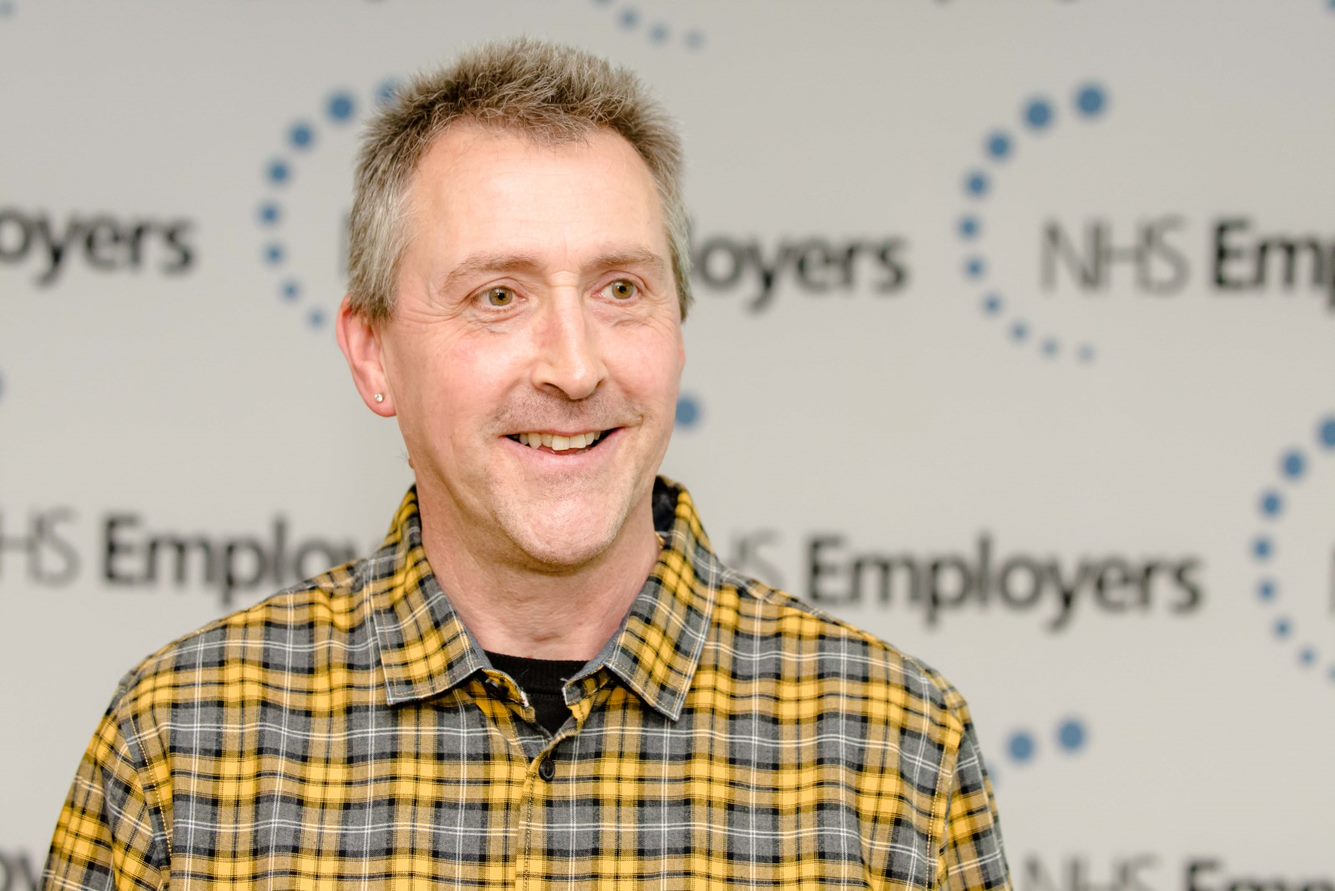
Paul has been a HR professional for over 30 years. He has worked in local government, the voluntary sector and the health service – with particular experience in the fields of recruitment, employee relations, employment law and diversity. When working for Barnardo’s he took on the role of national equality and diversity manager. After a short spell as a HR lead in an NHS trust, he was seconded into the Department of Health and Social Care’s Equality and Diversity Team to help them develop the first national strategy in this area.
Paul currently works for NHS Employers – which represents and supports NHS trusts across England – and is helping NHS organisations to embed diversity and inclusion good practice across the NHS. He also works on various diversity working groups and initiatives – with bodies such as the Chartered Institute of Linguists and the Recruitment Industry Disability Initiative – and writes frequently about all aspects of diversity through various social media channels.
Paul was honoured to be named in the 2020 People Management Diversity Power List https://www.peoplemanagement.co.uk/long-reads/articles/people-management-diversity-inclusion-power-list-2020
LinkedIn profile: https://www.linkedin.com/in/paul-deemer-85803a5/
Twitter: @NHSE_Paul
-
Dr Sarah Hillman, GP and an Academic clinical lecturer, Warwick Medical School
Sarah Hillman is a GP and an Academic clinical lecturer in the Unit of Academic Primary care at Warwick Medical school. Her research is around ways to improve women’s health care in Primary care and in the community. Sarah also is a GP reviewer for the MBRRACE reports (trying to reduce maternal mortality rates in the UK) and a member of GPCPC (GPs Championing Perinatal Care). Sarah is a previous speaker at TEDxNHS 2019 where she spoke about the need for medical feminism.
-
Ms Tamzin Cuming, Chair of Women in Surgery Forum at the Royal College of Surgeons of England and a Consultant Surgeon
- Charlie Light, Head of Equality, Diversity and Inclusion, General Medical Council
Tamzin Cuming was educated at a grammar school in Kent, Cambridge and Guy's and St Thomas's Hospitals. She trained in surgery in Brighton and the South East and North East Thames training rotations, a training which was prolonged by a period of less than full time training while bringing up her three children. She obtained her FRCS General Surgery in 2010 and a Masters in Surgical Education from Imperial College in 2012 and was appointed as a Consultant Surgeon at Homerton University Hospital in 2013.
She has a specialist interest in anal neopalsia and is currently undertaking a part time PhD at the University of Amsterdam in the Netherlands in the Treatment of Anal Intraepithelial Neoplasia and in 2021 she was appointed as the Chair of Women in Surgery Forum at the Royal College of Surgeons of England.
|
16.00
|
Keynote - Charlie Massey, Chief Executive, GMC
Charlie Massey joined the General Medical Council as Chief Executive and Registrar in November 2016 prior to which he spent 4 years as a Director General at the Department of Health where he had had responsibility for acute care provision, policy and strategy on workforce issues, quality, safety, regulation and professional standards. He has worked in a variety of roles across government and the wider public sector including at the Department for Work and Pensions where he led on policy for State Pensions and other pensioner benefits, and in the Prime Minister’s Strategy Unit where he led projects on childcare and drugs.
|
|
16.30 |
Close |